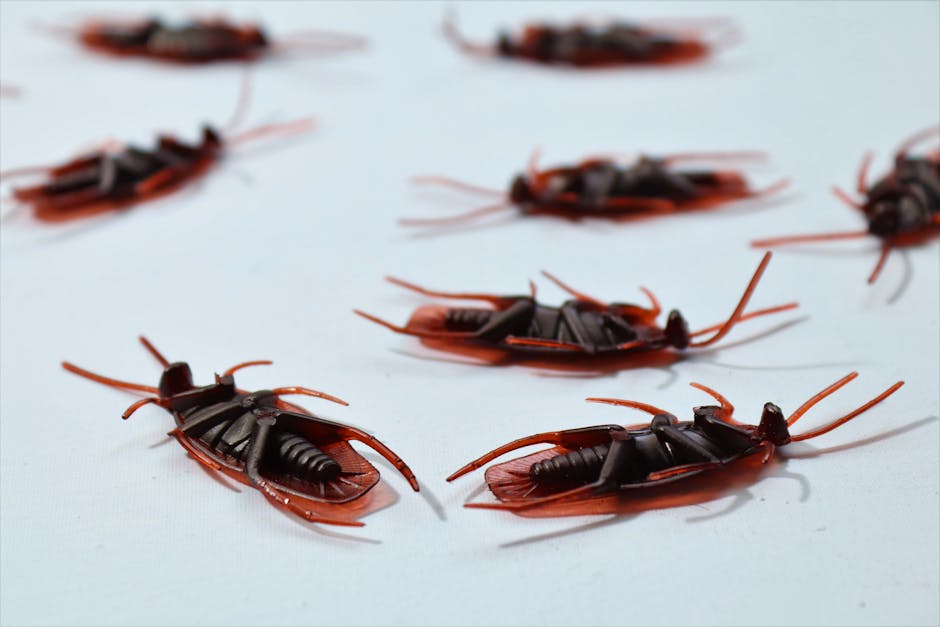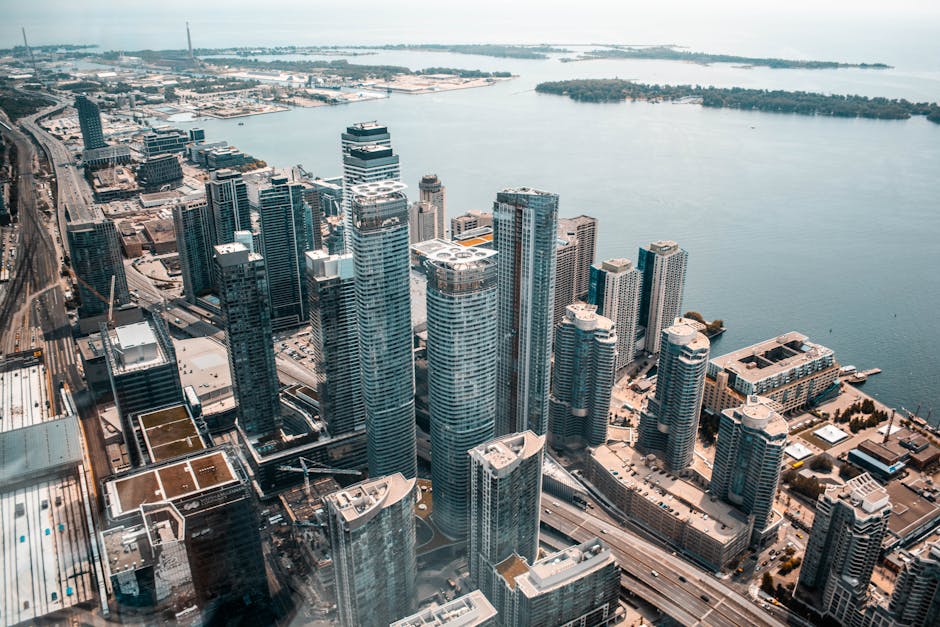
A commercial pest control technician plays a critical role in maintaining the health and safety of commercial properties. These professionals are responsible for inspecting, identifying, and eradicating pest infestations in various commercial settings such as offices, restaurants, warehouses, and retail stores. The need for effective pest control in commercial environments cannot be overstated, as infestations can lead to severe health hazards, property damage, and financial losses.
As a commercial pest control technician, you will be expected to have a keen eye for detail and a thorough understanding of pest behavior. This job is not just about eliminating pests; it also involves implementing preventive measures to ensure that infestations do not recur. Skills in communication and customer service are also essential, as you will often need to explain treatment plans and preventive strategies to clients.
If you are passionate about creating safe and healthy environments and are interested in a career that combines technical skills with customer interaction, becoming a commercial pest control technician might be the right path for you. For more information on how you can join our award-winning team, please contact us at info@pestisect.ca or visit our website.
Key Responsibilities of a Pest Control Technician

As a commercial pest control technician, you will have a wide range of responsibilities that ensure commercial properties remain pest-free. Your duties will extend beyond just extermination; they will encompass prevention, inspection, and client education. Here are some of the key responsibilities:
- Inspection and Identification: Conduct thorough inspections of commercial properties to identify signs of pest infestations. This involves recognizing different types of pests and understanding their behaviors and habitats.
- Treatment Application: Apply appropriate pest control treatments using chemicals, traps, and other methods. Ensuring the safe and effective application of these treatments is crucial to minimizing risks to humans and pets.
- Preventive Measures: Implement preventive measures to avoid future infestations. This may include sealing entry points, advising on sanitation practices, and setting up ongoing monitoring systems.
- Documentation: Maintain accurate records of inspections, treatments, and follow-up visits. This documentation is essential for regulatory compliance and for tracking the effectiveness of pest control strategies.
- Client Communication: Educate clients about the findings of inspections, the treatments applied, and preventive steps they can take. Effective communication helps build trust and ensures clients understand the importance of ongoing pest management.
- Equipment Maintenance: Regularly maintain and calibrate pest control equipment to ensure it functions properly and safely.
Mastering these responsibilities is essential for providing exceptional pest control services and for ensuring the health and safety of commercial environments.
Essential Skills for Commercial Pest Control

To excel as a commercial pest control technician, possessing a specific set of skills is crucial. These skills not only enhance the effectiveness of pest control measures but also ensure safety and customer satisfaction. Here are some of the essential skills required:
- Attention to Detail: A keen eye for detail is vital for identifying subtle signs of infestations and potential entry points that pests might use.
- Technical Proficiency: Proficiency in using various pest control tools and technologies, such as sprayers, traps, and monitoring devices, is necessary to perform the job effectively.
- Problem-Solving Skills: Each pest situation is unique, requiring a technician to think critically and devise effective solutions tailored to specific infestations.
- Physical Stamina: The job often involves physical tasks such as lifting heavy equipment, crawling into tight spaces, and standing for extended periods, making physical stamina a key requirement.
- Communication Skills: Clear communication with clients is essential for explaining the nature of infestations, treatment plans, and preventive measures. It also aids in building trust and ensuring client cooperation.
- Knowledge of Safety Protocols: Understanding and adhering to safety protocols is crucial when handling chemicals and equipment to mitigate risks to oneself and others.
- Time Management: Efficient time management ensures that technicians can handle multiple appointments in a day and provide timely service to clients.
Developing these skills will not only make you a proficient pest control technician but will also help you build a reputation for reliability and excellence in the field.
Required Qualifications and Certifications

The role of a commercial pest control technician demands a specific set of qualifications and certifications to ensure that the individual is competent and compliant with industry standards. Here, we outline the key qualifications and certifications required:
- High School Diploma or Equivalent: A minimum educational requirement for most pest control technician positions is a high school diploma or an equivalent qualification. This provides a foundational understanding of basic science and mathematics, which are essential in this field.
- State Certification: Most states require pest control technicians to be licensed. This typically involves passing an exam that covers pesticide use, safety regulations, and pest identification. Each state has its own regulatory body, so it is important to check specific requirements in your region.
- On-the-Job Training: Many employers provide on-the-job training for new hires. This training covers the practical aspects of pest control, including the use of equipment, application of treatments, and adherence to safety protocols.
- Continuing Education: The pest control industry is continually evolving with new techniques and regulations. Engaging in continuing education and professional development courses helps technicians stay current with industry changes and maintain their certifications.
- Specialized Certifications: Some areas of pest control may require additional certifications, such as fumigation, termite control, or wildlife management. Obtaining these specialized certifications can enhance a technician’s skill set and job prospects.
- Background Check: Given the nature of the job, which often involves entering private businesses and homes, technicians may be required to undergo a background check to ensure trustworthiness and reliability.
Meeting these qualifications and obtaining the necessary certifications are critical steps in building a successful career as a commercial pest control technician. They not only demonstrate a technician’s competence but also ensure compliance with legal and safety standards.
Work Environment and Conditions

The work environment and conditions for a commercial pest control technician can vary greatly, depending on the nature of the job and the specific pests being targeted. Here are some key aspects of what to expect:
- Varied Locations: Technicians often work in diverse settings, from office buildings and warehouses to restaurants and retail stores. This variety means that no two days are the same, offering a dynamic work environment.
- Exposure to Chemicals: Pest control technicians regularly handle pesticides and other chemicals. While these substances are essential for effective pest management, they also require strict adherence to safety protocols to avoid health risks. Proper use of personal protective equipment (PPE) is crucial.
- Physical Demands: The job can be physically demanding, involving tasks such as crawling into tight spaces, climbing ladders, and lifting heavy equipment. Good physical fitness is beneficial for managing these activities efficiently.
- Weather Conditions: Technicians may need to work outdoors in various weather conditions, from extreme heat to cold and rain. This aspect of the job requires adaptability and readiness to face challenging environmental factors.
- Flexible Hours: Pest problems don’t always occur during regular business hours. As a result, technicians may need to work evenings, weekends, and even holidays to address urgent pest issues for their clients.
- Customer Interaction: A significant part of the job involves interacting with clients to assess their pest problems, explain treatment plans, and provide follow-up services. Strong communication skills are essential for building trust and ensuring customer satisfaction.
- Safety Measures: Given the potential hazards, safety is a top priority. Technicians must follow rigorous safety guidelines, including proper storage and handling of chemicals, to prevent accidents and ensure their well-being.
Understanding the work environment and conditions of a commercial pest control technician is crucial for anyone considering this career. While the job offers variety and dynamic challenges, it also demands adherence to safety standards and readiness to tackle physical and environmental obstacles.
Career Growth and Opportunities
Working as a commercial pest control technician offers numerous opportunities for career growth and professional development. Here are some pathways for advancing in this field:
- Certification and Specialization: Technicians can enhance their skills and knowledge through certification programs. Specializing in areas such as termite control, fumigation, or integrated pest management can open doors to higher-paying positions and increased responsibilities.
- Supervisory Roles: With experience and proven expertise, technicians can move into supervisory or managerial roles. These positions involve overseeing teams, coordinating large-scale pest control projects, and ensuring compliance with industry regulations.
- Sales and Consulting: Experienced technicians who excel in customer interaction and have a deep understanding of pest control solutions can transition into sales or consulting roles. These positions focus on developing client relationships, providing expert advice, and designing customized pest management plans.
- Starting a Business: For those with an entrepreneurial spirit, starting a pest control business can be a rewarding venture. It allows technicians to leverage their expertise, build a client base, and potentially achieve significant financial success.
- Continuing Education: The pest control industry is continually evolving with new technologies, methods, and regulations. Technicians committed to ongoing education and professional development can stay ahead of industry trends and maintain a competitive edge.
- Networking and Professional Associations: Joining professional associations and attending industry conferences can provide valuable networking opportunities. Building connections with other professionals in the field can lead to collaborative opportunities and career advancement.
The career growth and opportunities in the pest control industry are abundant for those who are dedicated and proactive. Whether through specialization, leadership roles, or entrepreneurial endeavors, commercial pest control technicians can achieve substantial career progression.
Interested in learning more about how Pestisect Pest Control Inc. can help you advance your career? Contact us or visit our website today!






